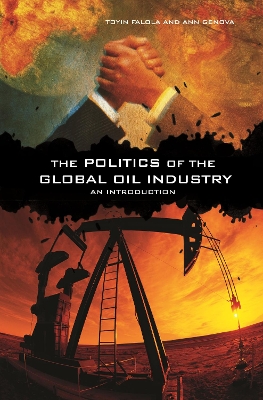Non-Series
1 total work
The petroleum industry is among the most lucrative and most important in the world, and its impact within the realm of international politics is tremendous (although it can be overstated). Taking a well-balanced and objective approach to the complicated web of political and economic threads that make up the fabric of the oil industry, Falola and Genova introduce the most salient aspects in clear language, offering cogent and up-to-date information about the countries, companies, international organizations, and people who shape the contemporary history of the black gold.
The relationship of international politics and the global oil industry affects everyone but is understood by few. Taking a well-balanced and objective approach to deconstructing this intricate web for those unfamiliar with the industry, Falola and Genova introduce the major players in the field, offering cogent and up-to-date information about the countries, companies, organizations, and people who shape the contemporary history of oil. They break down the essentials, describing the discovery process, the different types of oil, and the various processes by which oil gets to the market. Then they provide a brief history of the major oil-producing countries, followed by a discussion of OPEC and international efforts to control the price and supply of oil. After setting the stage, they introduce the most salient political issues that are influenced by oil, namely environmental protection, human rights, and economic development. Finally, a look at each of seven major oil exporters-Iraq, Mexico, Nigeria, Norway, Russia, Saudi Arabia, and Venezuela-demonstrates that the black gold can be both a blessing and a curse for the countries that produce it.
Despite the need to learn how to exploit alternative energy sources before the oil runs out, we will continue to be dependent on oil for the foreseeable future. Today's oil demands are not only generated by such obvious activities as gassing up our cars or powering our aircraft, but also from the ubiquitous technological gadgets that have infiltrated our daily lives. From computer monitors to CDs, from cell phones to the petroleum-generated materials used in our shoes and sweaters, our reliance on oil continues to grow. Because price and supply are highly dependent on political events in distant countries, it is essential for American consumers to understand the intricacies of this complex subject. Falola and Genova demystify the industry and invite us to investigate more deeply this vital resource.
